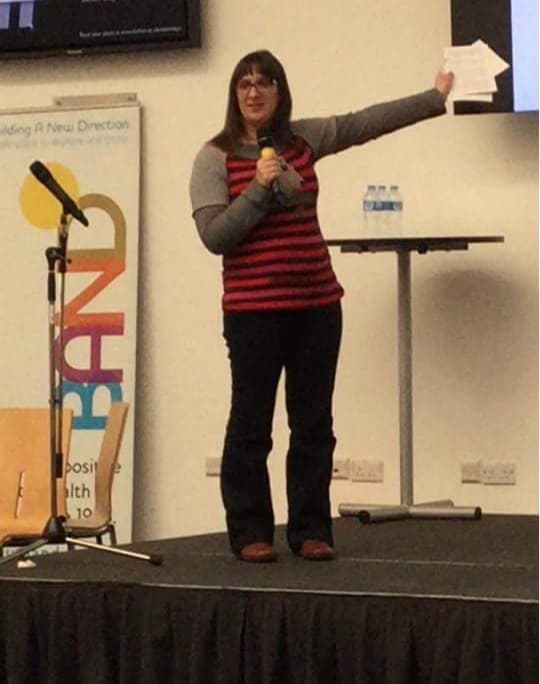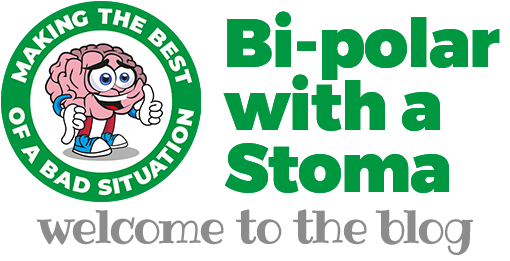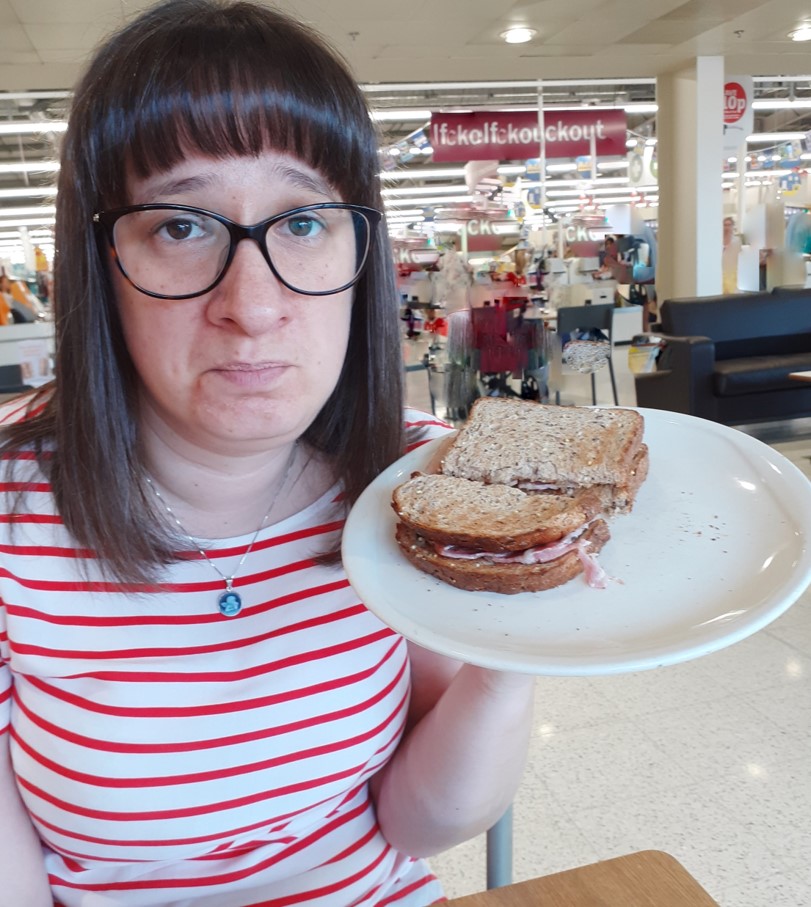
The year 2002:
- It was the year Halle Berry became the 1st black actress to win an accademy award for best actress.
- Britney Spears and Justin Timberlake split up.
- and Michael Jackson dangled his baby over a balcony.
I was twenty. I was in my last year at university, ready to take on the world. Ready to show everyone that I was someone special. I was ready to make a difference.
I guess you could say on the surface I was just like any other student, I was hardworking, I had a lot of friends, I liked to go out and have a dance to music no one knew the words to and I had big ideas and big dreams I desperately wanted to achieve.
On the surface you might say I was normal; but there was one difference between me and the rest of my friends. My mind was clouded by something that had haunted me since the beginning of high school. Suicide.
I wrote my first novel aged 11. It was called The College Fears and it was about a girl who was at university who was starving herself because she was unhappy, but for no apparent reason.
I wrote my second novel aged 13. It was called The Waste of a Person and it was about a girl at university who was obsessed with suicide. She’d tried to kill herself 13 times in 5 years but for no real reason other than she didn’t want to be part of this world.
Writing about self harm and suicide was never a sadistic ploy at being different or miserable, it was my attempt to make sense of my own unhappiness, because I never told anyone just how unhappy I really was.
Because I was quiet I was labelled: shy, meek, timid. And when I wouldn’t do the things other children were doing, such as dressing in the latest fashion, swooning over the nations favourites boybands or hanging around the swings at the park with a bottle of White Lightening, people said I lacked confidence and I had low self esteem. But the truth is, growing up, I wasn’t really allowed to be me. If I had I might not have had low self esteem.
This world has a set of regimented rules for us to follow, rules that mean we fit in nicely with the rest of society so that we don’t stand out. We are taught not to challenge the norm and anything outside of what is seen as acceptable, is made an example of and ridiculed.
Growing up I was ridiculed from the way I walked to the clothes I wore to my passion for writing. But it wasn’t just idle teasing from my peers, I was ridiculed and loathed by someone you would think would love me unconditionally. My Dad.
My Mum, my brother and me lived in a house that was like a military camp. We were told to disappear from a room he wanted to be in. We had school bag checks for drugs and cigarettes, bedroom inspections, degree level maths lessons on a Saturday afternoon. We had to be granted permission to eat a meal and we were given a bedtime that was extended by half an hour each birthday. When I was fifteen it was lights out at 8pm. In summer it was still light outside and all of my friends were still at the swings I’d never been to.
We were picked on, laughed at, played off against each other but the worst thing, was we grew up as children thinking this was normal.
On the outside we appeared to be the perfect nuclear family. Two hardworking loving parents with two extremely well behaved children. But, I grew up with such a degree of self loathing that for years I couldn’t even look in the mirror without hating what I saw.
Nothing I did ever matched up to his expectations and everything I did was a disappointment. At 13 I was called a waste of a person because of the way I ate a grape. I wore clothes that were baggy and unfashionable and ugly, thinking that by doing this I could hide and no one would notice me but it turned out, by doing this, I just drew even more attention to myself.
Going through school I was bullied for being a swot. But really I was working so hard to pass my exams so that I could escape to university and get away from the military camp. And I did, I got to university anyway.
What I realise now is, you can change your surroundings but you can’t change people, because wherever you are in the world, people are the same. And so was I. I still didn’t fit in and in the end, I didn’t want to be here.
Because who would want to be part of a world that doesn’t accept the people in it?
During our lives we all want to be liked and accepted but in the process we forget to like and accept ourselves.
I have Bipolar disorder, and for anyone who doesn’t know, Bipolar Disorder is a debilitating mental illness and I have struggled with it for fifteen years. I’ve had six hospital admissions within that time, four of them because I made plans to end my life.
People said I had everything to live for and I should have a think about all the good things in my life and then I would feel better because other people have it worse. But it doesn’t matter how good your life is or how happy you’re supposed to be because mental illness can be stronger than everything we have inside of us and around us.
Mental illness, whatever form it might be, whether its Bipolar, or Depression, Schizophrenia, OCD, Personality Disorder, they are all the same and they try to destroy us from the inside and we live in a world where talking about our mental health and our feelings and emotions is frowned upon. But it’s days like today that make it easier for us to admit that life isn’t always perfect, because no one is perfect – not even the rich and famous and across the world mental illness affects everyone.
Owen Wilson
Drew Barrymore
Halle Berry
Eminem
Princess Diana
David Walliams
These are all people who have tried to end their lives. We might not always know it but even the most powerful of people suffer from dark days.
Take Robin Williams for example, we all know his work, Mork and Mindy, Mrs Doubtfire, Good Will Hunting. Robin Williams was known for his funny and eccentric personality. He was an impressionist who I always saw laughing but in 2014 when he ended his life I was…horrified if I’m honest. It was Robin Williams. How could this happen?
In May this year American singer Chris Cornell took his own life at the age of 52 and two short months later one of the lead singers of American band Linkin Park Chester Bennington, ended his life too.
Chester Bennington’s death floored me. I have been a massive Linkin Park fan since the age of 18. Their first album Hybrid Theory was the first album my brother and I agreed on. It was my first experiment in the world of rap and hard rock, you’d never think I was a mosher would you? But his death also raised questions. I thought, if he couldn’t be saved, if no one cared enough to realise he needed help, if a celebrity with all the money and the means that the rest of us can only ever dream of couldn’t make it, then what chance do the rest of us have?
I don’t have the answers, but I believe in the power of our voices and the importance of understanding a problem in order to solve it. Its so easy to get angry with the person who leaves us. Chester had six children, Chris Cornell had three, so did Robin Williams. How could any of them leave their children? Believe me I’ve asked that question myself, we spend so much time feeling angry and asking why, that we forget to think about the person we have lost.
I believe suicide is not a decision made lightly. Its a choice someone makes when they believe they have no choice. When they truly believe that their families and the world would be better if they weren’t in it.
Well today I want to help put an end to that. The starting point in tackling mental illness is to end the silence.
Today’s event is about having positive conversations and raising awareness of the issues surrounding mental illness. By using our voices we can all play a part in the battle to reduce stigma.
So what can we do?
- Find someone to talk to. This can be a friend or a relative or someone completely objective.
- Approach a charity who offer services to help you. I can recommend a good one – BAND
- Identify the source of your unhappiness. Is it money, people, circumstances, work, health? There are solutions to everything we think is against us.
I still get periods of self-loathing and depression but I tackle them head on now because I don’t deserve to feel it.
Public speaking gives me a platform to show others that being different from the rest is actually a good thing. Back in school and at university, in fact, everywhere in between, I’ve always been different, but now, I don’t feel bad about it, I embrace it.
People think I’m weird because I like Drag Queens. Well I really like them so I had one perform at my wedding.
I have an obsession with swans and Cher. What can I say I like her music. So I walked down the aisle to it.
I name the ornaments around my house, if its got a face it gets a name.
I embrace my quirks and now I’m comfortable with who I am because I surround myself with people who are comfortable with me.
Years ago I would dream of living in a tiny village in the Scottish Highlands where I would ride a bike with a basket on the front. I’d be a writer and I’d own a book and stationary shop. I might be married, I might have children and there would be no room for unhappiness.
Today the reality is simple. I don’t live in the Scottish Highlands or a village. I live in the suburbs of Bolton in a terraced house.
I’m married to someone who couldn’t be more opposite to me but regardless of how different we are I’m lucky to have found my soul mate. He accepts everything I am and everything I do and he has no idea how happy that makes me.
There will always be unhappiness in all of our lives at some point, but I want to raise awareness of the difficulties some of us have on a daily basis with our mental health.
Mental illness is not a weakness and I think its important to know there is always a choice before it comes to having no choice.
Even if we can’t see it there is always someone who can show us the way because, life doesn’t have to end if we have a mental illness, life starts the second we take control of it.

